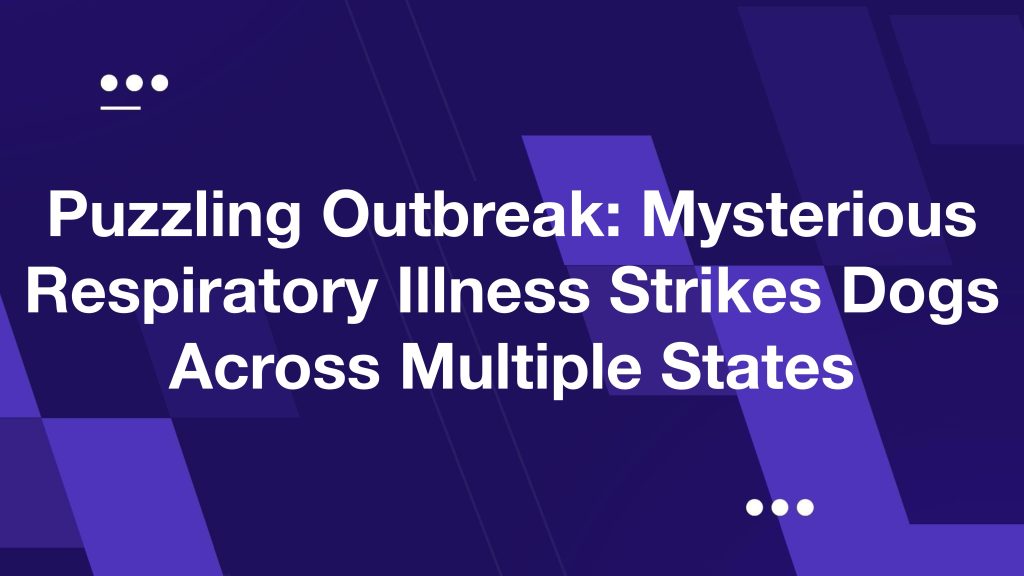In recent months, veterinary laboratories in several states have been grappling with an unusual and concerning respiratory illness affecting dogs. As veterinarians strive to unravel the mystery behind this ailment, they are urging pet owners to take basic precautions to safeguard the health of their beloved pets.

States such as Oregon, Colorado, and New Hampshire have reported cases of this illness, characterized by persistent respiratory disease and pneumonia that fails to respond to antibiotics. Symptoms exhibited by affected dogs include coughing, sneezing, nasal or eye discharge, and lethargy. Disturbingly, some cases of pneumonia progress rapidly, rendering dogs extremely sick within a mere 24 to 36 hours.
The Oregon Department of Agriculture has been diligently documenting cases since mid-August and has already recorded over 200 instances of the disease. It has encouraged pet owners to promptly reach out to their veterinarians if their dogs display symptoms of illness, while also instructing state veterinarians to report cases as soon as they are identified. Collaborating with state researchers and the U.S. Department of Agriculture’s National Veterinary Services Laboratory, the agency is determined to uncover the causative agent behind these illnesses.
Tragically, dogs have succumbed to this respiratory illness, as confirmed by Kurt Williams, director of the Oregon Veterinary Diagnostic Laboratory at Oregon State University. Nevertheless, due to the lack of a definitive diagnostic test or clear definition of the disease, it is challenging to quantify the number of deaths resulting from the severe form of this infection.
In the face of this disconcerting situation, Williams offers a reassuring message to dog owners: “Don’t panic.” He emphasizes the importance of ensuring that pets are up to date on their vaccinations, including those that specifically protect against various respiratory illnesses. Such proactive measures can potentially offer dogs an added layer of defense against this mysterious ailment.
In an effort to combat this perplexing disease, laboratories nationwide have been collaborating and sharing their findings. David Needle, senior veterinary pathologist at the University of New Hampshire’s New Hampshire Veterinary Diagnostic Laboratory, has been closely investigating this enigmatic illness for nearly a year. His lab, along with colleagues at the university’s Hubbard Center for Genome Research, has been studying samples obtained from affected dogs in Rhode Island, New Hampshire, and Massachusetts, with more samples expected from Oregon, Colorado, and potentially other states.
Needle highlights that, despite not witnessing a significant surge in dog fatalities linked to this illness, it is still essential for pet owners to “decrease contact with other dogs.” While the mystery persists, this precautionary measure can aid in reducing the risk of transmission and potential complications associated with the respiratory ailment.
While the search for answers continues, it is evident that veterinary experts are diligently working to unravel the complexities of this respiratory illness plaguing dogs. In the meantime, responsible and vigilant pet ownership, combined with staying informed about the latest developments and recommendations from veterinary professionals, can help ensure the safety and well-being of our cherished furry companions.



